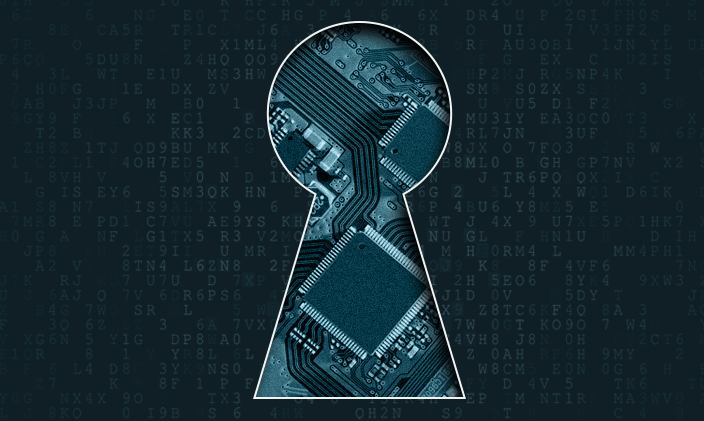Articles > Cybersecurity > Essential cybersecurity skills for professionals
Essential cybersecurity skills for professionals

Written by Michael Feder

Reviewed by Kathryn Uhles, MIS, MSP, Dean, College of Business and IT

When choosing between a degree in criminal justice vs. criminology, both can prepare students for careers in security, corrections, investigations or the courts. However, a criminology or criminal justice degree are different path within the larger fields. It’s important to understand the similarities and differences between these two subjects to choose the one that best fits overall career goals. Criminology is a social science that concentrates on criminal behavior, the factors surrounding crimes and the steps necessary for effective enforcement and prevention. Criminal justice involves the hands-on application of criminology. It focuses more on implementing enforcement and prevention.
Given the growing sophistication of cybercrime and attacks, organizations need professionals with well-honed cybersecurity skills who can identify and protect them from these threats.
This is also true for the foreseeable future. Cybersecurity professionals have to stay ahead of the curve when it comes to the future of cybersecurity and technology, including evolving malware, remote access corners, the increase of automation, cyberwarfare, cybercrime and other advancing threats.
Cybersecurity experts must possess certain foundational skills to effectively counter these and other threats. Here, we take a look at what those are.
System administration
A cybersecurity professional’s ability to develop, maintain and troubleshoot networks and computer systems is essential. System administrators must use their skills to:
- Understand how cyber environments function holistically
- Install and upgrade applications/software
- Monitor system performance
- Configure hardware components
- Troubleshoot system errors
- Develop cybersecurity policies
- Manage user access rights
- Deploy cybersecurity tools and technologies
System administrators guarantee computer systems and services function properly. The responsibilities and cybersecurity skills associated with this occupation can be extensive and vary depending on what type of technology it relates to. However, most tasks have certain elements in common regardless of the specific technologies employed.
Most companies prefer applicants for network and computer systems administrator jobs to possess a bachelor’s degree in relevant fields, such as a computer and information technology or other related fields. At the very least, some companies may consider applicants who have a postsecondary certificate or associate degree paired with experience and reference.
Network administrators must remain knowledgeable about the latest technological advancements in this ever-evolving field. They often accomplish this through courses and IT conferences.
Programming languages
Data programming languages are a cybersecurity professional’s best friend. With the right skills, cybersecurity specialists can create custom scripts and programs to automate cybersecurity tasks like malware detection, data collection and patching vulnerable systems.
In addition to knowing popular high-level programming languages such as Python, cybersecurity experts should be familiar with lower-level languages such as C, C++ and assembly. A basic understanding of these languages helps cybersecurity specialists identify areas in code vulnerable to cyberattacks.
Certifications such as CompTIA Security+ or Cisco Certified Network Professional (CCNP) can benefit those looking to learn more about programming languages and stay up to date on cybersecurity trends. However, these skills go beyond just cybersecurity. Knowing how to code can help network managers and cyber analysts as well.
Data management
Data management is a huge part of cybersecurity. Cybersecurity professionals must be able to handle, store and protect vast amounts of data. They need to know how to correctly classify, label and store information to keep it secure.
Data management skills also involve knowing what types of data should be shared with other cyber professionals, such as cyber investigators and analysts. In addition, they need to understand data privacy principles and how to protect sensitive data from cyberattacks. Having a degree in information systems can be beneficial, but there are also certificates and certifications available that can help improve one’s cybersecurity skill set.
Certifications like Certified Information Systems Security Professional (CISSP) or Certified Ethical Hacker (CEH) are great ways to demonstrate cybersecurity data management skills. However, learning cybersecurity is not a one-time process but an ongoing journey of self-improvement and education. As threats evolve, cybersecurity professionals must stay updated on trends and technologies to protect organizations.
Cloud security
Cloud computing is a common cybersecurity tool that stores and processes data remotely. Professionals must understand the complexities of this technology and the cybersecurity skills to be able to assess and mitigate cloud-based threats.
Cloud cybersecurity specialists should understand cloud architecture, popular cloud applications such as Amazon Web Services (AWS) or Microsoft Azure, and security best practices for cloud computing. With a bachelor’s degree in computer science, information technology or a related field, you can potentially become an information security analyst.
Cloud security isn’t limited to cybersecurity professionals. Network engineers, software developers and cyber analysts can all benefit from having a basic understanding of cloud computing and security best practices. Certifications such as the AWS Certified Cloud Practitioner are a way for cybersecurity professionals to demonstrate their knowledge in this field.
Blockchain security
Blockchain is an innovative cybersecurity technology that has revolutionized storing and managing data. Cybersecurity professionals must understand how to use blockchain technology securely to ensure the safety of their organization’s data.
Blockchain security specialists should understand cryptography, distributed ledger technologies and cloud computing well. They should also be familiar with cybersecurity best practices and understand how to protect distributed ledgers from attacks. A degree in computer science or engineering can benefit professionals seeking to gain more knowledge of blockchain technology.
The Certified Blockchain Security Professional (CBSP) certification is another excellent way professionals can demonstrate skills in this area. This certification examines security best practices and teaches professionals how to secure blockchain technology.
The Internet of Things
The Internet of Things (IoT) is a rapidly growing technology. In this regard, cybersecurity specialists must identify threats related to connected devices and develop best practices for protecting IoT networks.
IT specialists should also understand cybersecurity protocols, secure coding principles and software development life cycles. Those with computer science, engineering or math degrees can potentially become security analysts and specialize in IoT cybersecurity.
With the Certified IoT Security Practitioner (CIoTSP) certification, professionals can demonstrate their cybersecurity skills in this area. Aside from cyber specialists, software engineers, network engineers and system architects can benefit from learning cybersecurity best practices for IoT.
Operating Systems and AI
Establishing a strong cybersecurity foundation begins with understanding operating systems and their corresponding vulnerabilities. As AI continues to gain traction in cybersecurity, professionals must know how to leverage machine learning algorithms to detect existing or potential threats.
AI cybersecurity specialists should understand security best practices for AI systems, data privacy regulations and secure coding principles. With a degree in computer science or engineering, you can potentially become an AI cybersecurity analyst.
Soft cybersecurity skills
Continuous learning in technology is necessary because of the field’s ever-changing nature. However, hard skills are only part of the equation for cybersecurity professionals who wish to thrive in this field. Professional soft skills are also important.
Cybersecurity professionals must be able to work cross-functionally with other departments and be comfortable troubleshooting, educating and collaborating with people who have other areas of expertise. To do so effectively, they need the following skills.
Accurate typing
The ability to type quickly will help cybersecurity specialists in their day-to-day tasks, such as searching through a system’s code or writing reports regarding threats.
Time management
Time management skills are also crucial. With threats constantly evolving, cybersecurity specialists must act quickly and efficiently when responding to incidents.
Organizational skills
Developing good organizational skills can help cybersecurity specialists better manage incidents effectively, identify threats in real time and prioritize security tasks appropriately.
Ultimately, a career in cybersecurity requires a combination of cybersecurity knowledge and soft skills. Those with a knack for technology and cybersecurity best practices can become specialists with the right education, certifications and experience.
Earn a degree that teaches you cybersecurity skills
Whether you’re seeking to gain a basic understanding of information technology or cybersecurity, or you’re a working professional looking to expand your cybersecurity skill set, University of Phoenix offers online course collections, bachelor’s degrees and master’s degrees in technology. Learn more about undergraduate and graduate technology programs:
- Bachelor of Science in Information Technology
- Bachelor of Science in Cybersecurity
- Master of Science in Cybersecurity
- Certified Ethical Hacker Course Collection
- Certified Incident Handler Course Collection
- Certified Network Defender Course Collection
- Computer Hacking Forensics Investigator Course Collection
Questions? Contact University of Phoenix for more information.

ABOUT THE AUTHOR
A graduate of Johns Hopkins University and its Writing Seminars program and winner of the Stephen A. Dixon Literary Prize, Michael Feder brings an eye for detail and a passion for research to every article he writes. His academic and professional background includes experience in marketing, content development, script writing and SEO. Today, he works as a multimedia specialist at University of Phoenix where he covers a variety of topics ranging from healthcare to IT.

ABOUT THE REVIEWER
Currently Dean of the College of Business and Information Technology, Kathryn Uhles has served University of Phoenix in a variety of roles since 2006. Prior to joining University of Phoenix, Kathryn taught fifth grade to underprivileged youth in Phoenix.
This article has been vetted by University of Phoenix's editorial advisory committee.
Read more about our editorial process.


Get your free IT Program Guide
Learn how 100% of our IT degree and certificate programs align with career-relevant skills.
Thank you
Download your pdf guide now. Or access the link in our email.


